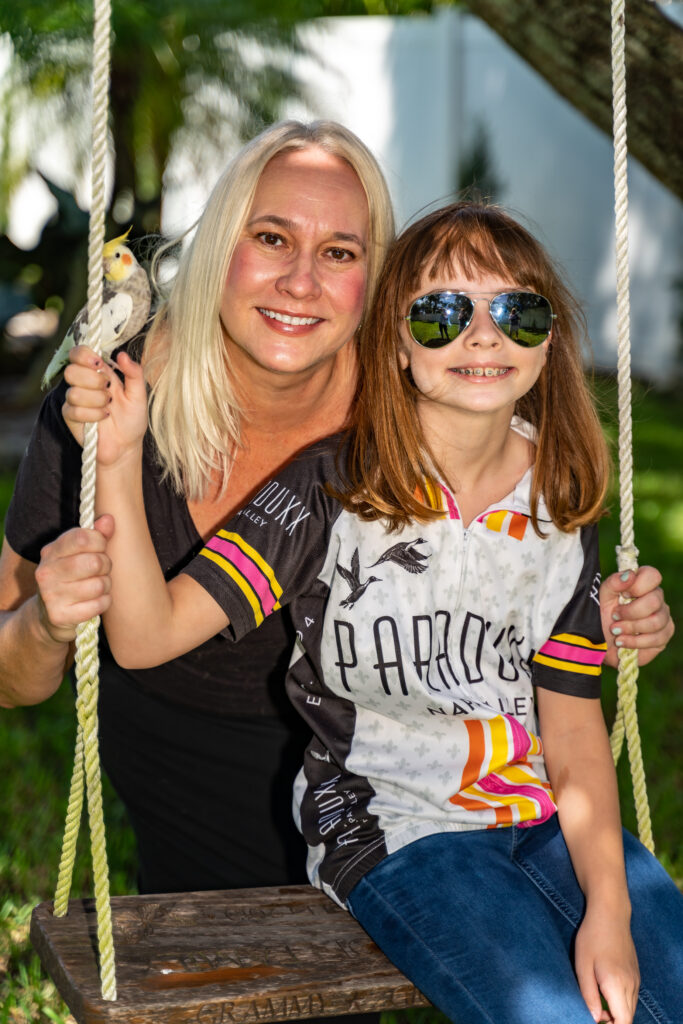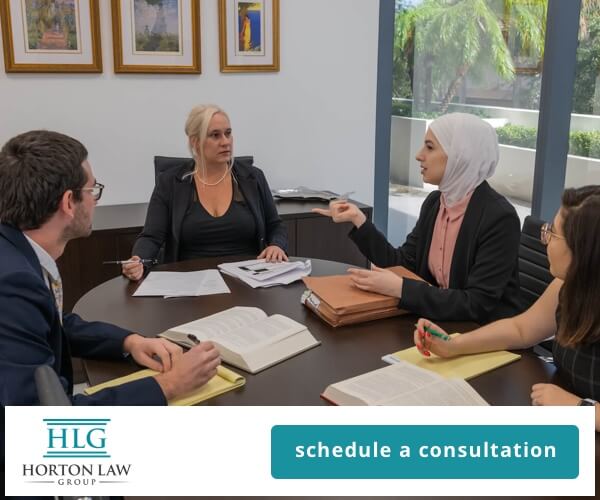
Parental responsibility is a term of art for who decides the major issues involving the minor child.
Parental responsibility refers to decision-making related to the child’s health, wellbeing, education, and so on. (Fla. Stat. §61.046(14)). The standard in Florida is to have shared parental responsibility. However, a Court can deviate from this standard and grant sole parental responsibility or ultimate decision-making authority to one parent if certain issues arise. (Fla. Stat. 61.13(2)(c)(2)).
If minor children are involved, parental responsibility must be determined by the Court if the parents cannot agree on who makes decisions about the children.
What is shared parental responsibility?
“Shared parental responsibility” means a Court-ordered relationship in which both parents retain full parental rights and responsibilities with respect to their child and in which both parents confer with each other so that major decisions affecting the welfare of the child will be determined jointly. (Fla. Stat. §61.046(17)).
What is sole parental responsibility?
“Sole parental responsibility” means a Court-ordered relationship in which one parent makes decisions regarding the minor child. (Fla. Stat. §61.046(18)). For a Court to order that one parent have sole parental responsibility, it must find that shared parental responsibility would be detrimental to the child. Cranney v. Cranney, 206 So. 3d 162, 165 (Fla. 2d DCA 2016). This can incur of cases involving drug abuse, child abuse, alcohol abuse, parents who are in the military and stationed abroad, parents who are absent, or parents who refuse to make decisions in the best interest of the minor child(ren).
What is “ultimate decision-making authority”?
Ultimate decision-making authority means that if the parents are unable to agree on decision relating to the child, one parent will have the ultimate decision. For a Court to order that one parent have ultimate decision-making authority, it must find that shared parental responsibility would be detrimental to the child. Cranney v. Cranney, 206 So. 3d 162, 165 (Fla. 2d DCA 2016). This can incur of cases involving drug abuse, child abuse, alcohol abuse, parents who are in the military and stationed abroad, parents who are absent, or parents who refuse to make decisions in the best interest of the minor child(ren).

Can a Court take away my decision-making authority when it comes to my children?
Yes. This is a scary thought. That is why it is important to make sure you are represented by qualified and aggressive legal counsel when parental responsibility is at issue. Child custody litigation is tedious and if you don’t have an experienced attorney on your side, you may be in Court for years and you may spend hundreds of thousands of dollars fighting the other parent in Court for timesharing. It is important to retain counsel who is extremely experienced with Florida family law. The attorneys at the Horton Law Group, P.A. have over 20 years of combined experience with family law litigation. We take pride in our work. The attorneys at the Horton Law Group, P.A. are knowledgeable in the law, aggressive in Court, well-respected in the community and will fight for you and your children. If you have questions about child support and/or if you are looking for a family litigation attorney, please call the Horton Law Group, P.A. at 561-299-0018 to schedule a free 30-minute consultation with the principal partner of the Horton Law Group, P.A., Sommer C. Horton, Esq. or you can email us at legalsupport@hortonlawgroup.com to schedule a free 30-minute consultation.
What happens when parents cannot agree on medical treatment of the children?
Child custody cases present a difficult time for all parties involved. It is especially difficult for any children involved. A child’s difficulty is compounded even further where the child requires medical treatment, and the parents cannot agree on a course of treatment. Surprisingly enough, parents often differ on how they wish to proceed with a child’s medical treatment. Unfortunately, the choice of treatment can become another arena in which litigation is involved.
When parents cannot agree on medical treatment for the minor child or children, the Trial Court will intervene and assign a specific parent healthcare decisional authority – ultimate decision making authority, as seen above. In fact, the statutes of Florida specifically allow a Court to designate which parent will be solely responsible for all forms of health care.
When a Court is called upon to decide which parent should have healthcare decisional authority, the Court will choose the method of treatment that comports with the best interest of the child. The state of Florida, through statute, has listed twenty-six factors a Court is to consider when assessing what constitutes the best interests of the child. These factors range from the capacity of each parent to determine, consider, and act upon the needs of the child, to the capacity of each parent to maintain an environment for the child which is free from substance abuse (for the complete list of factors, please refer to section 61.13(3) of the Florida Statutes).
It is important to remember that a Court has the discretion to grant a parent decisional authority on a specific healthcare matter of the child or the grant all healthcare decisional authority to one parent. Generally, when a Court is called upon to decide which parent should have healthcare decisional authority, the Court will tend to grant said authority to the parent whose position is supported by medical science. For instance, in Winters v. Brown, a Florida Court of Appeals sided with a father who wanted to get his young child vaccinated. The mother in that case opposed vaccinations
on personal and religious grounds. The Court applied the best interest of the child test and found the father’s course of treatment would provide most for the health and life of the child. The Court took note of the competent and extensive medical science and evidence presented by the father in support of vaccinations in support of granting the father healthcare decisional authority over his child.
These situations take on additional complexity when a child has a terminal condition or a condition for which there is no known cure or treatment. In those instances, medical science would play less of role in determining the best interests of the child because medical science lacks any evidence in those instances. As of the writing of this piece, no Florida Court has ruled on such a situation. However, a Court would use the best interest of the child test and the factors of section 61.13(3).
What is Guardian Ad Litem and when would one be appointed by the Court?
Guardian Ad Litem (GAL) is a person who is appointed by the Court “to act as next friend of the child, investigator or evaluator, not as attorney or advocate.” (FL Stat. §61.401). The Court will appoint a GAL if it finds it is in the best interest of the child or if there are verified, well-founded allegations of child abuse, abandonment, or neglect as defined in Chapter 39.
Guardian Ad Litem’s are expensive, and the Court will generally order the parties to split the cost 50/50. In certain circumstances, the Court may order one party to pay most of the fees, or all of the fees, depending on the allegations in the case or the finances of the parties.
What is a Social Investigator and when would one be appointed by the Court?
Florida Rule 61.20 provides the grounds for when a Social Investigator can be appointed and what they are entitled to do. Generally, if the parents cannot agree on a Parenting plan, a Court can order a social investigation concerning all pertinent details relating to the child(ren) and parents to determine who should make child related decisions, who the children should reside with and any other matters at issue in your case.
A Social Investigator is usually a mental health professional, clinical social worker, or a Florida licensed psychologist. They investigate and render a report to the Court. The Social Investigator makes recommendations as to how the Court should rule on child related issues.
A huge area of concern in a case involving child custody or parental responsibility, is whether the Social Investigator appointed can be “bought” and/or is “neutral.” If a Social Investigator is appointed in your case and you feel that he/she is batting for the other side, you need to move quickly to get the Social Investigator removed before it is too late. This area of the law is highly complex and experienced legal counsel should be sought after immediately. The attorneys at the Horton Law Group, P.A. can help. It is easier to get a Social Investigator dismissed than to “undo” a report of the Social Investigator that is already provided to the Court – so time is of the essence.
Social investigations are invasive and expensive. A Social Investigator has the authority to talk to you, the other parent, the children, your employers/employees, your doctors, the children’s teachers, friends, family and whomever else they choose to investigate. They have the authority to review medical records, employment records, police records and school records.
The Court relies heavily on the Investigator’s assessments and ultimate recommendation, due to their neutral, third-party status. So if a Social Investigator is appointed in your case, make sure you have competent and aggressive counsel by your side before it is too late.
Will I be required to take parenting classes?
Yes. Florida law requires all parties to a divorce proceeding or paternity action that involves parental responsibility shall be required to complete the Parent Education and Family Stabilization Course. (Fla. Stat. §61.21(4)). In addition to this required course, the Court may also order additional parenting classes and/or anger management or batterers intervention or co-parenting classes if the certain allegations arise in a particular case.
Why hire the Horton Law Group to represent you?
Child custody litigation is tedious and if you don’t have an experienced attorney on your side, you may be in Court for years and you may spend hundreds of thousands of dollars fighting the other parent in Court for timesharing. It is important to retain counsel who is extremely experienced with Florida family law. The attorneys at the Horton Law Group, P.A. have over 20 years of combined experience with family law litigation. We take pride in our work. The attorneys at the Horton Law Group, P.A. are knowledgeable in the law, aggressive in Court, well-respected in the community and will fight for you and your children. If you have questions about child support and/or if you are looking for a family litigation attorney, please call the Horton Law Group, P.A. at 561-299-0018 to schedule a free 30-minute consultation with the principal partner of the Horton Law Group, P.A., Sommer C. Horton, Esq. Or you can email us at legalsupport@hortonlawgroup.com to schedule a free 30-minute consultation.







